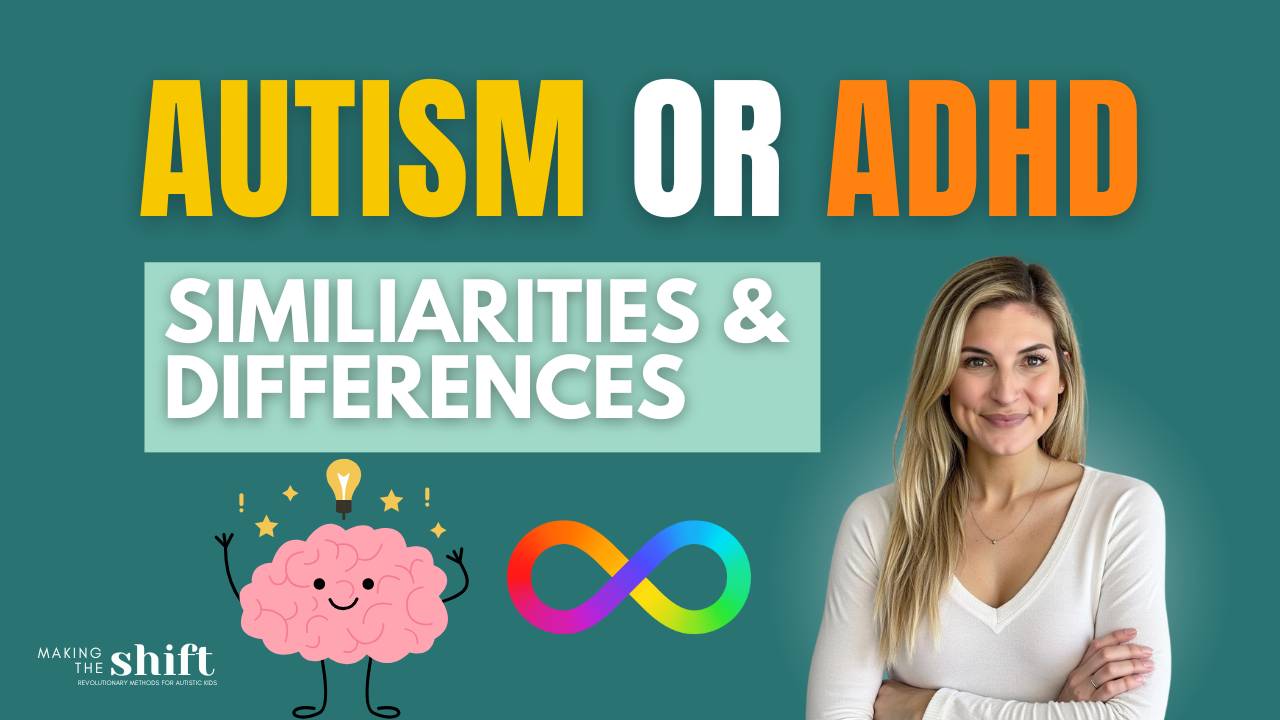Autism, ADHD, or Both?! Understanding the Key Differences and Overlaps

Let's talk about ADHD and Autism
A couple of years ago, I had this huge realization about ADHD and Autism.
I grew up very close to someone diagnosed with ADHD. This person was super smart, never had to do homework, always aced tests, but would get into trouble for not showing his work. He could just instantly solve problems. Socially, he struggled, but when he found his people he thrived. He had deep interests in math and electronics, built computers, and now is insanely successful in that field.
Because of him, my mental image of ADHD was shaped around his traits. Fast forward a bit, and I started dating my partner Chris (aka Speech Dude). He also has ADHD, and I saw how it showed up in him. That’s when I had my “wait a second!” moment. Turns out the person I had always assumed was ADHD was actually Autistic.
I even had a conversation with that person about it. He’d been following my content and asked me straight up, “Do you think I’m Autistic?” I said, “Well, do you think so?” and he said, “Yes.” So, we took an online autism assessment and sure enough, he's Autistic.
Many individuals diagnosed with ADHD might actually be Autistic, or they could have both which is referred to as AuDHD. In fact up to 70% of ADHDers are also Autistic.
That's why it's important to understand the core traits, their differences, and how to support someone with both.
Core Traits of ADHD vs. Autism
ADHD (Attention Deficit Hyperactivity Disorder)
ADHD primarily affects three main areas:
- Attention – Difficulty sustaining focus, easily distracted.
- Impulse Control – Acting without thinking, blurting things out.
- Activity Levels – Constant movement, fidgeting, seeking stimulation.
People with ADHD often:
- Tap their fingers, move their feet, or fidget.
- Struggle to stay on one task but can hyperfocus on things that interest them.
- Jump between conversations or interrupt with unrelated thoughts.
Autism Autistic individuals often experience differences in:
- Communication – Information dumping, differences in social reciprocity.
- Sensory Processing – Over- or under-sensitivity to sensory input.
- Emotional Regulation – A need for structure and predictability.
Autistic people may:
- Dive deep into specific interests, having extended conversations about them.
- Prefer structured, routine-based interactions.
- Experience hyperfocus, but in a way that’s different from ADHD.
Comparing ADHD and Autism in Real Life
Social Interaction & Communication
- Autistic People: Conversations might feel one-sided or focused on specific interests. They might find it hard to engage in traditional back-and-forth exchanges.
- ADHD People: They may impulsively interrupt, overshare, or jump between topics without a second thought. (Cue the “squirrel!” joke about distractions!)
Focus & Attention
- Autistic Person: Can work on one task for hours, especially if it aligns with their interests. Ever met someone who can spend a whole day building a model? That’s hyperfocus at work!
- ADHD Person: May hyperfocus so intensely they block everything out, but struggle to stay on task with anything that doesn’t grab their attention.
Understanding AuDHD
When someone has both ADHD and Autism it's referred to as AuDHD. Both together can create a unique mix of traits. These individuals might experience sensory sensitivities while also dealing with impulsivity and trouble focusing.
Understanding the differences and overlaps between ADHD and Autism is so important for accurate diagnosis and effective support. By broadening our understanding, we can help ensure that everyone gets the right resources and accommodations to thrive. So, let’s keep challenging our assumptions and continuing to learn. After all, the more we understand, the better we can support those around us.
Want to learn more about supporting neurodivergent kids?
Join us in the NeuroAffirm Therapy Academy - the only neuroaffirming learning hub + community for neurodiversity affirming professions. Learn more here: https://www.sensoryslp.com/neuroaffirm-therapy-academy

